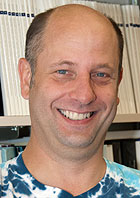What are your priorities for women’s health research? The National Institutes of Health (NIH) wants to know.
Washington University will host a national meeting March 4-6 on behalf of the NIH Office of Research in Women’s Health as it begins to develop research priorities for the next decade. The meeting begins with a public hearing to gather input from scientists, health-care providers, patients, community groups, advocacy groups and other interested parties.

Hultgren
It is the first of several regional conferences to explore new avenues for research into diseases and issues that affect numerous women.
“This is a wonderful opportunity for researchers, clinicians and the public to make a significant impact on the direction and future of federally funded women’s health research,” said Samuel L. Stanley Jr., M.D., vice chancellor for research.
The meeting includes panel discussions and presentations on translating unmet medical needs into new research initiatives. Additionally, the conference brings together U.S. physicians, scientists and public policy officials who will work in small groups to develop specific recommendations and priorities in seven areas: chronic pain; bladder and pelvic floor disorders; brain and psychiatric disorders; infectious diseases of the urinary and reproductive tracts; obesity and eating disorders; genetics and microbial communities; and women in biomedical careers.
“We think the conference will generate innovative ideas and energize new research on women’s health, including the role of sex and gender in health and disease, and the unique ways in which women are affected by diseases that burden all people,” said Scott Hultgren, Ph.D., director of the Center for Women’s Infectious Disease Research, who has helped organize the meeting.
Keynote speakers for the event are Nancy Nielsen, M.D., Ph.D., president of the American Medical Association and senior associate dean for medical education at the State University of New York at Buffalo School of Medicine and Biomedical Sciences, and Phoebe Leboy, Ph.D., president of the Association of Women in Science and professor emerita of biochemistry at the University of Pennsylvania.
To submit oral or written testimony at the public hearing, an online form detailing remarks must be completed by Feb. 20. The form can be found at orwhmeetings.com/newdirections/testimony.aspx.
The conference is free and open to the WUSTL community and the public, but registration is required. To register and find more information, visit research.wustl.edu/womenshealth.
The conference begins at 2 p.m. March 4 in the Eric P. Newman Education Center on the medical center campus with opening remarks and a panel discussion featuring Judy Norsigian, author and executive director of Our Bodies Ourselves, and Susan Scanlan, president of the policy group Women’s Research and Education Institute. Public testimony will begin immediately afterward.